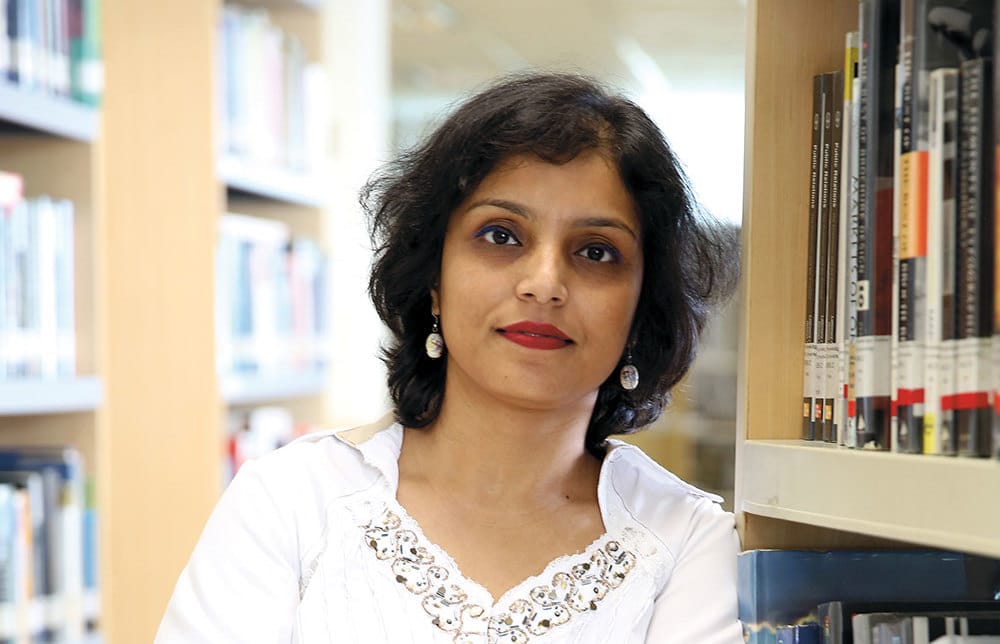
For Dr Sanjukta Choudhury-Kaul, a former communications executive and 2015 PhD graduate, the Monash University program provided a pathway to an ambitious academic career and innovative research focus: disabilities and business studies.
“Monash opened doors I never knew existed,” says Choudhury-Kaul, from the Binus University Business School campus in Jakarta, Indonesia, where she teaches business in Southeast Asia and business ethics.
With first-class honours from the University of Pune and a master’s degree with distinction from Nottingham Business School in corporate social responsibility (CSR), Choudhury-Kaul had several choices when deciding on a graduate school in 2009. Monash, however, offered a flexibility and rigour other universities couldn’t match. Choudhury-Kaul now researches CSR and business in Southeast Asia, exploring how business deals with workplace disabilities.
Life for Choudhury-Kaul, who grew up in Delhi and Mumbai, India, changed dramatically when, in 2005, complications from a rare birth condition damaged her hearing, resulting in her becoming 80 per cent hearing-impaired.
“In a matter of weeks, I went from being an able-bodied professional with a full thriving career to a person with disability, having an uncertain future.”
A decorated, 10-year career in corporate communications, which included international awards, proved increasingly hard to sustain. An “epiphany” – in which she realised her calling was to use her business experience to make the workplace more inclusive for people with disabilities – took her to the University of Nottingham on a prestigious Chevening Scholarship. Family commitments, however, led her back to Asia.
Monash, with a campus in Selangor, Malaysia, was the obvious choice. “I’m immensely grateful,” she says. “As an Indian studying India in Malaysia, with a disability, they saw me as a talent and a prospect, and offered support to make it happen.” Monash University’s offer came with a full PhD scholarship and funding for fieldwork in India, which included 54 case studies.
Her research, nominated for best PhD thesis in the Monash Malaysia School of Business, focused on how firms in the competitive Indian IT sector deal with disability, particularly among their employees. Ultimately, her goal was for the research to have an impact. “We need Asian research to be more tangible,” she says. “It has to be translated into action.”
In terms of her ambitions, Choudhury-Kaul says she wants to leave “footprints” in the world. “I’m not going to be an iconoclastic, ivory-tower academic (although I respect the theory); my strength is I come from industry.”
Choudhury-Kaul recently led a project funded by the Association of South-East Asian Nations (ASEAN) in Myanmar, partnered by Binus University and the ASEAN CSR Network, exploring ways to enable greater participation for people with disabilities in the mainstream workforce.
“I can be a difficult woman,” Choudhury-Kaul says, laughing as she recalls past struggles and confrontations with corporations over disability policies. In her future she sees further research and work with non-profit organisations.
And Monash, she says, has been a key stepping stone. “My PhD transformed me as a person.”





